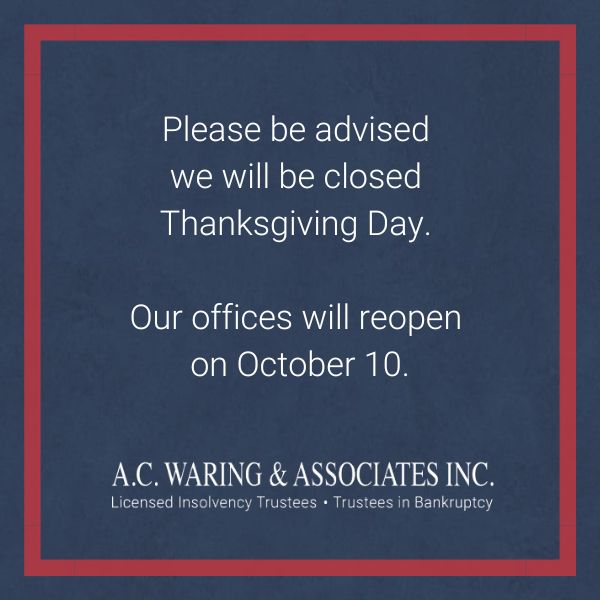Despite more and more services allowing consumers to review their own credit reports, many people have still never actually checked their credit history. In addition to the benefit of knowing where you stand and how you rank, the information found in your report can also help you determine whether there are indications or warning signs that you need debt relief services. Although you may not initially understand what everything means, once the items are broken down it becomes relatively simple and straightforward.
Canadian reporting agencies Equifax and TransUnion keep track of the most significant financial history of consumers, including any loans they have obtained, any payments made to creditors, and any credit cards they may have. They do not keep a record of utility bills, property taxes, income taxes or other types of government debts unless they have been assigned to a collection agency due to delinquency. If everything is kept in good standing—meaning: paid on time as well as, ideally, 30 percent or more below of their credit card limit—your credit report and credit score will likely be favourable.
The Main Items to Look Out For
Consumers with low credit scores or a poor credit history indicate unpaid, irregular or other bill payment missteps which will impact their credit rating. This impact may lower their credit score and may affect their future ability to obtain a loan, a job, a place to live, and a credit card—or at the very least, they will have greater difficulty. If you are included in this group, you would face higher interest rates and lower credit limits in the event that you are approved for any of the above. The various personal details on your report include your birthdate and contact information, employment history and social insurance number (optional). It is ideal to review your own credit report at least annually to ensure the information is correct and you have not been a victim of identity theft. You should report any suspicious or incorrect details immediately to have them changed.
Understanding The Coding System and Beacon Score
Credit reports include letters and numbers that are used as a coding system. While the letters represent the type of credit, the 1 to 9 rating represents the actual individual credit experience in the past—in this case, 1 being the best. The more consistent and on time individuals are with payments, the better the creditor experience rating they will receive based on their overall credit information.
The letters stand for:
- I – Installment credit (money borrowed for a specific length of time),
- M – Mortgage loan,
- O – Open status credit (a limited amount of money borrowed as needed),
- R – Revolving or Recurring credit (a limited amount of money borrowed on an ongoing basis).
The overall credit score or the ‘Beacon Score’ is made up of many details including individual items recorded by each creditor. Your Beacon score will range from 300 to 900.
How long does it takes for certain information to be removed?
Despite the extensive financial details exposed in a credit report, any specific derogatory information expires after six years from the last transaction with that creditor. Fortunately, the good experience reports are continually updated. However, they do not necessarily counter balance the importance of any derogatory ones. Judgments, collections, filing for bankruptcy, and secured creditor repossessions all stay on the bureau for six years. Registered consumer proposals and orderly payment of debt orders last for three years plus the term of the proposal or repayment term.
Even though you may not check your own report and history, members of the credit report industry, prospective employers, landlords, banks, governmental institutions, insurance companies, and cell phone companies which have your consent, will typically seek it out to judge whether or not individuals can be relied upon to pay back any charges incurred.
No matter what your credit rating, A.C. Waring & Associates Inc. offers debt solutions such as credit counselling in Edmonton to help you with debt overload and services to help you start over as necessary to begin repairing your history.
Contact us today by calling our Edmonton office at 780-424-9944 or toll-free at 1-800-463-3328.
A.C. Waring & Associates Inc.
“The Debt Solutions People”®




